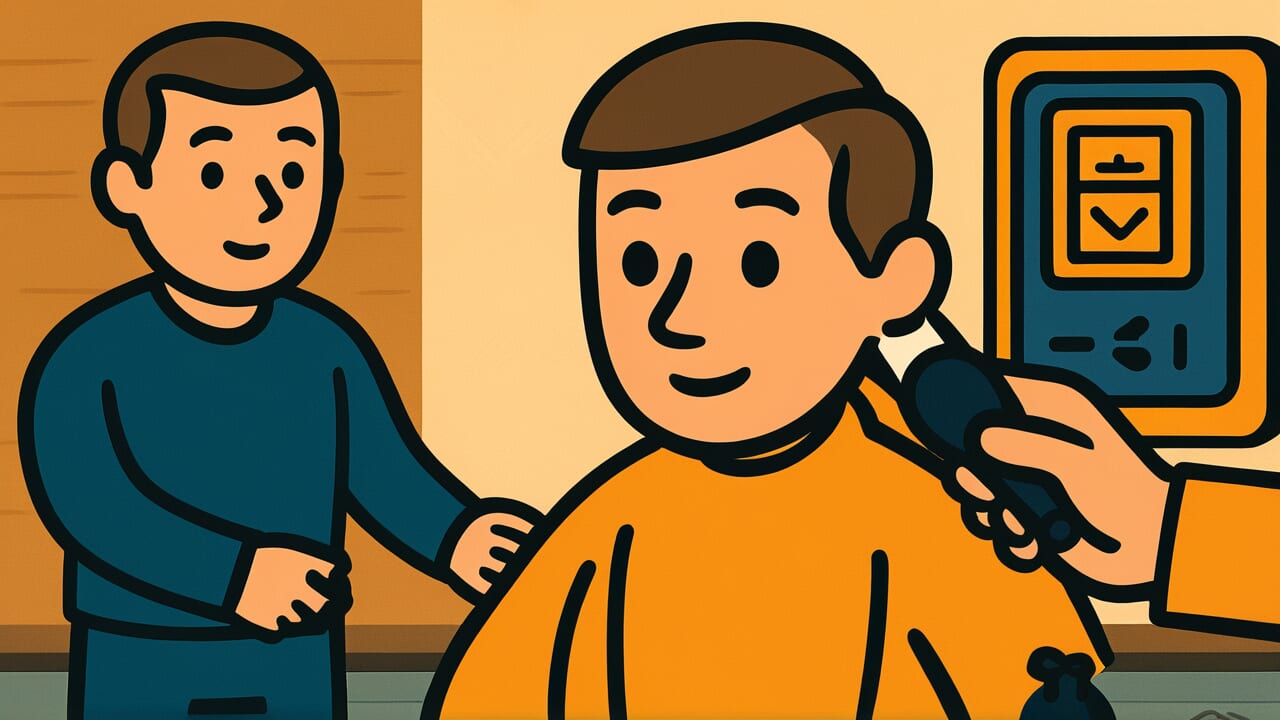How to Read “Dare to be a guest rather than a host”
Aete shu to narazu shite kyaku to naru
Meaning of “Dare to be a guest rather than a host”
This proverb teaches a smart way to live. It means choosing to follow instead of leading on purpose.
Instead of being the leader who stands in front, you step back. You choose to be a supporter or helper instead.
Why would someone do this? Being a leader comes with big responsibilities and pressure. Other people might get jealous or attack you.
By choosing to be a guest, you avoid unnecessary fights. You keep your freedom while still having real influence.
Today, this means working in a team without needing the spotlight. You make real contributions without taking big risks. It’s a choice that combines being humble and being smart.
Origin and Etymology
This proverb likely comes from ancient Chinese philosophy. It was influenced by the teachings of Laozi, a famous Chinese thinker.
Laozi’s book “Tao Te Ching” teaches that being soft and humble is valuable. The idea of choosing to be a “guest” instead of a “host” connects deeply to this philosophy.
“Host” means the person in charge who leads. “Guest” means the person who is invited and follows.
At first, being the host seems better. But Laozi taught something different. By stepping back, you actually gain more freedom and avoid conflict.
It’s like water flowing to low places. Soft, low things are actually the strongest in the end. This is a surprising truth.
Chinese philosophy came to Japan long ago. Warriors and merchants learned these ideas as survival wisdom.
During Japan’s warring period and Edo period, people understood something important. Sometimes not standing out and choosing to follow helps you survive.
This proverb became part of how Japanese people think about life. It grew from these historical experiences.
Usage Examples
- For the new project, I chose to dare to be a guest rather than a host. I decided to fully support my experienced senior instead.
- If you want to start a business, dare to be a guest rather than a host. First, learn from the pioneers in your industry.
Universal Wisdom
In human society, there’s always competition for leadership. Everyone wants to be recognized and valued. Everyone wants to have influence.
But this proverb shows something deeper. By holding back these desires on purpose, you gain real wisdom.
Look at history. The people at the top faced the worst attacks. They carried the heaviest responsibilities. Sometimes they even lost their lives.
Meanwhile, the number-two people often survived longer. They kept real influence for a much longer time. There are countless examples of this.
Humans have a natural tendency. We want to criticize things that stand out. We feel like pulling down successful people.
This proverb has lasted so long because it understands this truth. Taking control isn’t the only form of power.
Sometimes stepping back is stronger. You can see the whole picture. You can move flexibly. You have real freedom.
This isn’t weakness. It’s a strategic choice based on understanding how people really work. Our ancestors passed down this surprising truth as wisdom for survival.
When AI Hears This
When we analyze negotiations mathematically, something interesting appears. The side that moves second has more information. This creates a big advantage.
For example, imagine a price negotiation. The seller says “100,000 dollars” first. At that moment, the buyer learns something important. “This person is willing to sell for 100,000 dollars.”
But the seller doesn’t know the buyer’s maximum budget. This difference in information gives the second player strategic choices.
Game theory calls this “reducing information sets.” The first player shows their cards. The second player uses that information to calculate the best response.
Real experiments show this works. In negotiations, the side that proposes second gets 12 percent better terms on average.
This is different from chess or Go. In those games, all information is visible. In negotiations, the other person’s true feelings and limits are hidden.
When more information is hidden, the second player’s advantage grows even bigger.
There’s another interesting point. The first player faces “commitment.” Once they make an offer, they can’t easily change it. They lose flexibility.
The second player sees the first offer. Then they can accept it, make a counter-offer, or end the negotiation. They keep multiple choices and freedom.
Lessons for Today
Modern society praises leadership too much. We celebrate people who take initiative. But this proverb teaches a different way to live that has real value.
Are you wondering if you should lead or step back? Remember this wisdom. You don’t need to be the leader in every situation.
Sometimes choosing to follow is better. You learn more. You move more freely. You keep influence longer.
Young people especially should remember this. Don’t rush to take control. First, spend time learning from excellent people.
That experience becomes priceless. When the time comes to truly lead, you’ll be ready.
Being wise means choosing your position strategically. You can be either a host or a guest. That freedom to choose is your greatest strength.



Comments